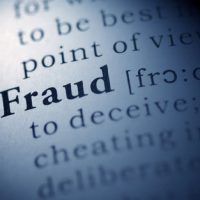Is Medicaid Fraud the Same as Grand Theft in Florida?

Although it is common for Florida prosecutors to bring multiple criminal charges arising from the same act or event, the Constitution’s prohibition against double jeopardy imposes certain restraints. Notably, if the state charges two separate offenses, one crime must require proof of an element that the other does not. Put differently, a person cannot be convicted of two effectively identical crimes just so that the prosecution can seek double the punishment.
Florida Court Vacates Theft Conviction on Double Jeopardy Grounds
A recent decision from the Florida Fourth District Court of Appeal, State v. Courts, provides a helpful illustration. This consolidated appeal involved two defendants tried in connection with alleged Medicaid fraud. The defendants served as chief operating officer and executive director, respectively, for a Florida health care provider that accepted Medicaid patients.
Prosecutors alleged that the defendants engaged in “back billing.” That is, they billed Medicaid for medical services that the patients never actually received. More precisely, the state tried the defendants for both Medicaid provider fraud and grand theft of $100,000 or more. A jury convicted both defendants of both charges.
After the jury’s verdict, the defendants moved to vacate their grand theft convictions. They maintained that all of the elements of grand theft were also present in Medicaid fraud. The grand theft charges therefore violated double jeopardy. The trial judge agreed and granted the motion to vacate the grand theft convictions.
The state appealed. But the Fourth District agreed with the defendants and the trial court. The appellate court explained that the Medicaid fraud law required the state to prove “specific intent to submit a false claim for payment thereby depriving another of money.” Similarly, Florida’s grand theft statute requires proof that a defendant “knowingly obtains” or uses the “property of another” with the intent to deprive the owner of that property.
The prosecution argued that grand theft required proof of “specific intent” to deprive the owner of their property while the Medicaid fraud statute did not. The Fourth District rejected that reasoning. It held that both crimes required proof of the defendant’s “specific intent.” After all, submitting a false Medicaid claim by accident or mistake is not a crime.
One judge dissented from the Fourth District’s decision. The dissent agreed with the state that grand theft did require “proof of an intent to deprive” while the Medicaid fraud statute did not. Additionally, Medicaid fraud required proof that the defendant “made a false statement or false representation” and that the victim was an agency or agent of a managed care plan, neither of which are elements of grand theft.
Contact the Joshi Law Firm Today
If you are facing charges related to fraud or theft, you need to work with an experienced Orlando white collar criminal defense attorney who can advise you of your rights and represent you in dealing with the police, the State Attorney, and the judicial system. Call the Joshi Law Firm, PA, today at 844-GO-JOSHI or contact us online to schedule a free initial consultation.
Source:
4dca.flcourts.gov/content/download/2425726/opinion/Opinion_2022-2855.pdf

